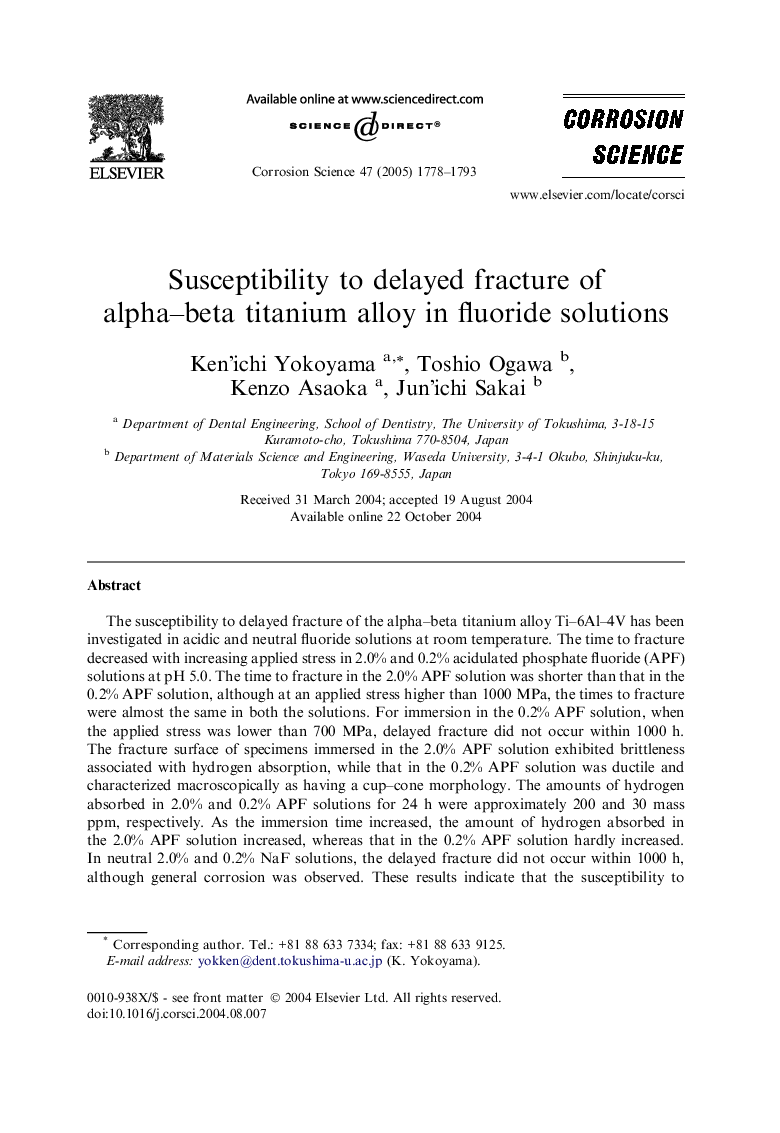| Article ID | Journal | Published Year | Pages | File Type |
|---|---|---|---|---|
| 10628655 | Corrosion Science | 2005 | 16 Pages |
Abstract
The susceptibility to delayed fracture of the alpha-beta titanium alloy Ti-6Al-4V has been investigated in acidic and neutral fluoride solutions at room temperature. The time to fracture decreased with increasing applied stress in 2.0% and 0.2% acidulated phosphate fluoride (APF) solutions at pH 5.0. The time to fracture in the 2.0% APF solution was shorter than that in the 0.2% APF solution, although at an applied stress higher than 1000 MPa, the times to fracture were almost the same in both the solutions. For immersion in the 0.2% APF solution, when the applied stress was lower than 700 MPa, delayed fracture did not occur within 1000 h. The fracture surface of specimens immersed in the 2.0% APF solution exhibited brittleness associated with hydrogen absorption, while that in the 0.2% APF solution was ductile and characterized macroscopically as having a cup-cone morphology. The amounts of hydrogen absorbed in 2.0% and 0.2% APF solutions for 24 h were approximately 200 and 30 mass ppm, respectively. As the immersion time increased, the amount of hydrogen absorbed in the 2.0% APF solution increased, whereas that in the 0.2% APF solution hardly increased. In neutral 2.0% and 0.2% NaF solutions, the delayed fracture did not occur within 1000 h, although general corrosion was observed. These results indicate that the susceptibility to delayed fracture of alpha-beta titanium alloy, compared with those of the alpha titanium and beta titanium alloy reported previously, is low in acidic and neutral fluoride solutions.
Related Topics
Physical Sciences and Engineering
Materials Science
Ceramics and Composites
Authors
Ken'ichi Yokoyama, Toshio Ogawa, Kenzo Asaoka, Jun'ichi Sakai,
